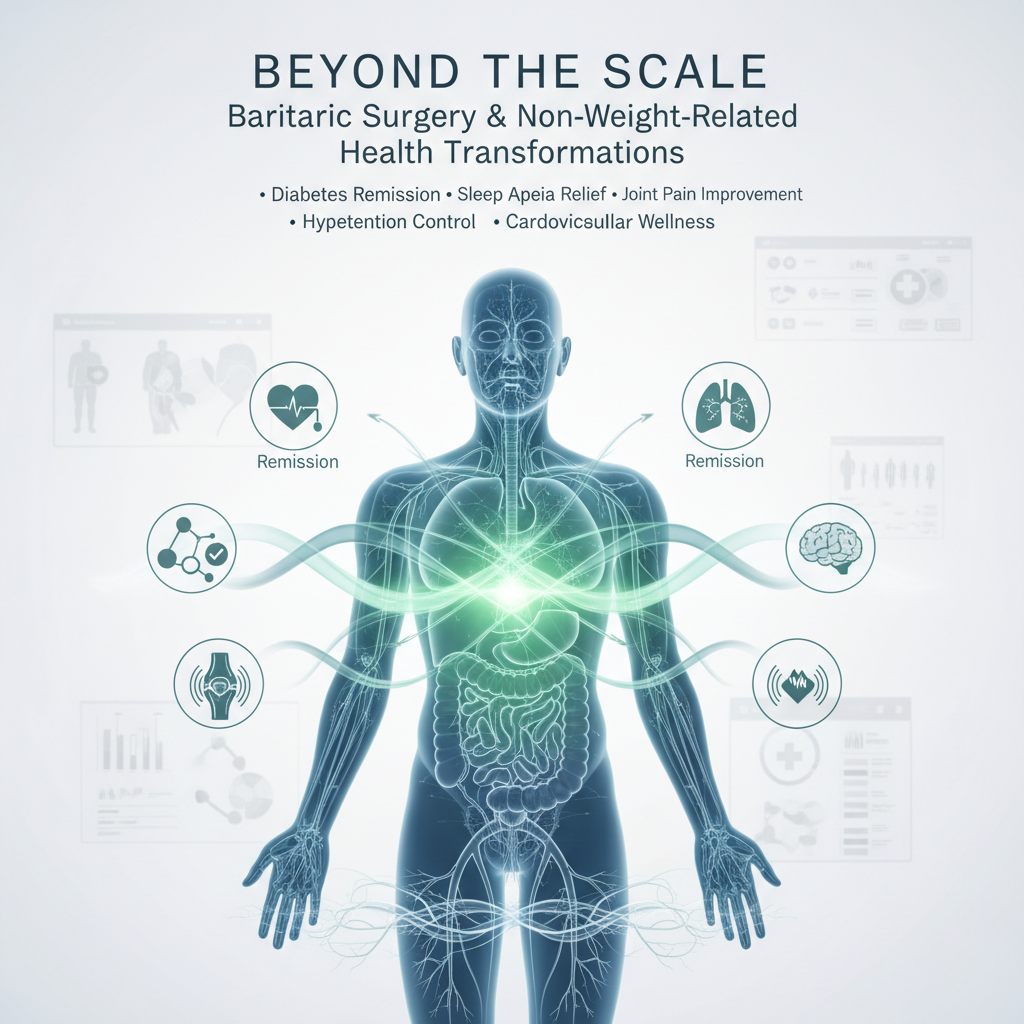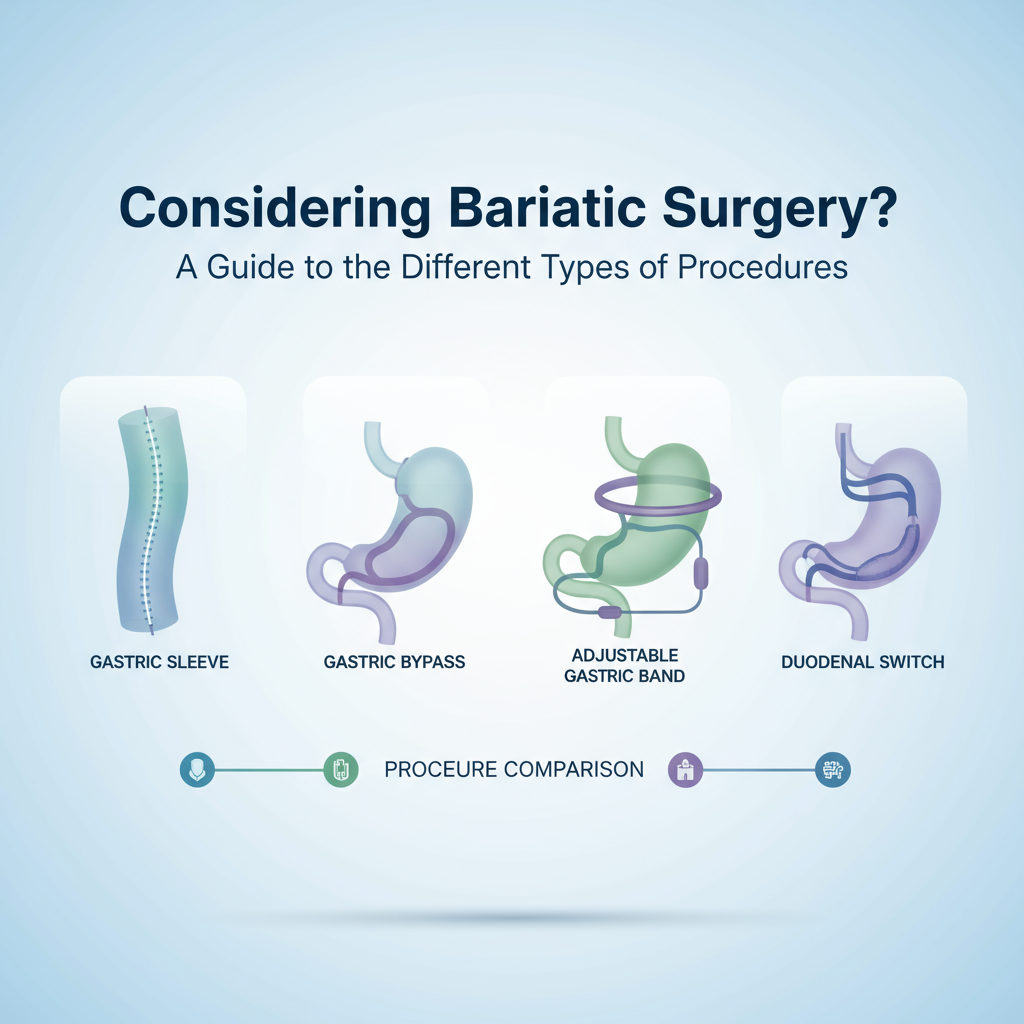For people considering weight loss surgery (prospective patients, partners, and clinicians comparing options) who feel overwhelmed by conflicting headlines and social posts — worried they'll be judged, misled, or end up worse off — this piece cuts through the noise. You want clear answers about bariatric surgery myths vs. bariatric surgery facts, and our multidisciplinary bariatric team can help you evaluate options, interpret data, and plan next steps without spin or pressure.
Top 10 things bariatric surgery isn't — and what it really is
So here's the thing about common misconceptions about weight loss surgery: there's a lot of half-truths floating around. Below I break down the top 10 bariatric surgery myths, explain why they're wrong, and give practical next steps (what to ask your surgeon, what to expect). I'm keeping it direct — no fluff.
1. Myth: Bariatric surgery is just cosmetic — it's not "real" medicine
Nope. Bariatric procedures are major metabolic operations with proven effects on Type 2 diabetes, high blood pressure, sleep apnea, and more. Look: surgery changes hormone signaling, gut anatomy, and metabolism — not just the size of your stomach. From what I've seen, many patients experience meaningful improvements in lab values within weeks. If you're skeptical, ask your team for metabolic outcome data and peer-reviewed study summaries — not just before-and-after photos.
2. Myth: It's an easy way out — you won't have to change your habits
This one bugs me. People think surgery does all the work. Truth: surgery is a tool that makes weight loss achievable for many who tried diet and exercise for years. The operation reduces appetite cues and alters digestion, but long-term success still requires behavior change, follow-up, and often psychological support. Want a realistic plan? Ask about pre-op nutrition education, 1-year follow-up schedules, and access to counseling — those are the services that actually predict success.
3. Myth: You’ll never be able to eat normally again
Not true. Eating will change, especially early on. But "normal" returns in a new form — smaller portions, higher protein, slower eating. Some foods may cause discomfort (dumping syndrome for certain procedures), and alcohol affects you faster. The upside: many patients discover improved food choices naturally because they feel better when they do. Practical tip: work with a dietitian who gives sample meal plans and grocery lists for months 1–6.
4. Myth: All bariatric surgery is the same
There are different operations — sleeve gastrectomy, Roux-en-Y gastric bypass, gastric banding (less common now), and newer metabolic procedures. Each has different risks, benefits, and expected weight-loss trajectories. It's like choosing between a Ferrari and a bicycle — both get you somewhere, but not the same speed or handling. Ask for procedure-specific complication rates and projected weight loss so you can match the option to your goals.
5. Myth: You'll be malnourished forever
Short answer: you may need lifelong supplements, but frank malnutrition is avoidable with proper follow-up. Bariatric surgery can reduce absorption of vitamins and minerals (especially with bypass-type procedures). So clinicians recommend regular bloodwork and specific supplements — vitamin B12, iron, vitamin D, calcium — based on your surgery type. In my experience, patients who stick to follow-up rarely develop severe deficiencies.
6. Myth: Surgery fixes all obesity-related problems instantly
Look — many conditions improve quickly (blood sugar control often improves within days), but not everything resolves fully in every person. Joint damage, long-standing nerve injuries, certain mood disorders may need separate care. The best outcomes happen when surgery is part of a comprehensive plan: physical therapy, endocrinology, mental health, and primary care working together.
7. Myth: You can't get pregnant or have children after bariatric surgery
False. Many people have healthy pregnancies after bariatric surgery — sometimes with improved fertility if obesity was a contributing factor. That said, pregnancy is usually recommended to be delayed for 12–18 months after surgery to allow weight to stabilize and ensure nutritional status is adequate. If you're planning pregnancy, coordinate with your OB-GYN and bariatric team (they'll monitor vitamin levels and weight trends).
8. Myth: Weight always comes back — surgery is pointless
Some weight regain happens for a portion of patients, yes. But many maintain substantial loss long-term (often 50% or more of excess weight depending on procedure and follow-up). The reality: the curve differs by person. What helps maintain loss is ongoing care — support groups, protein-focused diets, physical activity, and timely medical interventions if weight starts creeping back. Don’t assume failure before you even try.
9. Myth: Bariatric surgery is only for people who are "very obese"
Not entirely. There are established criteria (like BMI thresholds and the presence of comorbidities), but more clinicians consider surgery for people with BMI 30–35 who have uncontrolled diabetes or metabolic disease — especially when other therapies have failed. Guidelines evolve. If you think you might qualify, get a specialist evaluation rather than relying on outdated internet claims.
10. Myth: After surgery you won't need medical follow-up — everything's solved
That's a recipe for trouble. Follow-up is essential: scheduled lab checks, vitamin levels, weight monitoring, behavioral health sessions, and sometimes endoscopic or surgical checks. The healthcare team is there for long-term adjustments — medication changes, nutritional tweaks, or management of complications. If this feels overwhelming, our team can coordinate follow-up so you don't have to navigate it alone.
How to separate bariatric surgery myths from facts — practical steps
Want to actually vet information? Do this:
- Ask for data: request surgeon-specific complication rates, reoperation rates, and typical weight-loss trajectories at 1, 2, and 5 years.
- Verify credentials: check the center’s accreditation (look for a recognized bariatric surgery quality program).
- Get a multi-specialty consult: nutritionist, psychologist, and surgeon should all evaluate you — that’s not overkill, it's standard.
- Join a modern support group (in-person or virtual). Real patients share real tradeoffs — not marketing.
- Read patient-reported outcomes (not just testimonials). Look for surveys or peer-reviewed follow-up studies.
Common questions people ask (and quick answers)
Is bariatric surgery a quick fix?
No — it's a medical tool that accelerates weight loss and metabolic improvement. It makes sustained change more achievable, but it requires commitment to lifestyle changes and follow-up care.
Can anyone who’s overweight get bariatric surgery?
There are eligibility guidelines based on BMI and medical conditions. But eligibility has broadened over time, especially for people with serious metabolic disease. Best move: get an evaluation to confirm fit for surgery.
Will I have to take vitamins forever?
Often, yes — at least some supplements for life, depending on the procedure. Lifelong monitoring of vitamin and mineral levels prevents deficiency and keeps you healthy.
Is bariatric surgery dangerous?
All surgery has risks. Serious complications are uncommon when procedures are done at experienced centers, but risks exist — infection, bleeding, leaks, nutritional issues. Ask your surgeon for center-specific outcomes and how complications are managed.
How quickly will my diabetes improve after surgery?
Many people see blood sugar improvement within days to weeks, especially after bypass-type procedures. But ongoing diabetes care and monitoring remain important — don't stop medications without medical guidance.
Final note — how to move forward
If you're sorting through bariatric surgery myths and trying to decide, take it one step at a time. Start with an evidence-focused consult, get baseline labs, and discuss lifestyle support options. The truth is — surgery can be life-changing for many, but it's not magic and it isn't for everyone. If this feels overwhelming, our team can help you compare options, interpret data, and build a personalized plan so you can make an informed decision with confidence.





